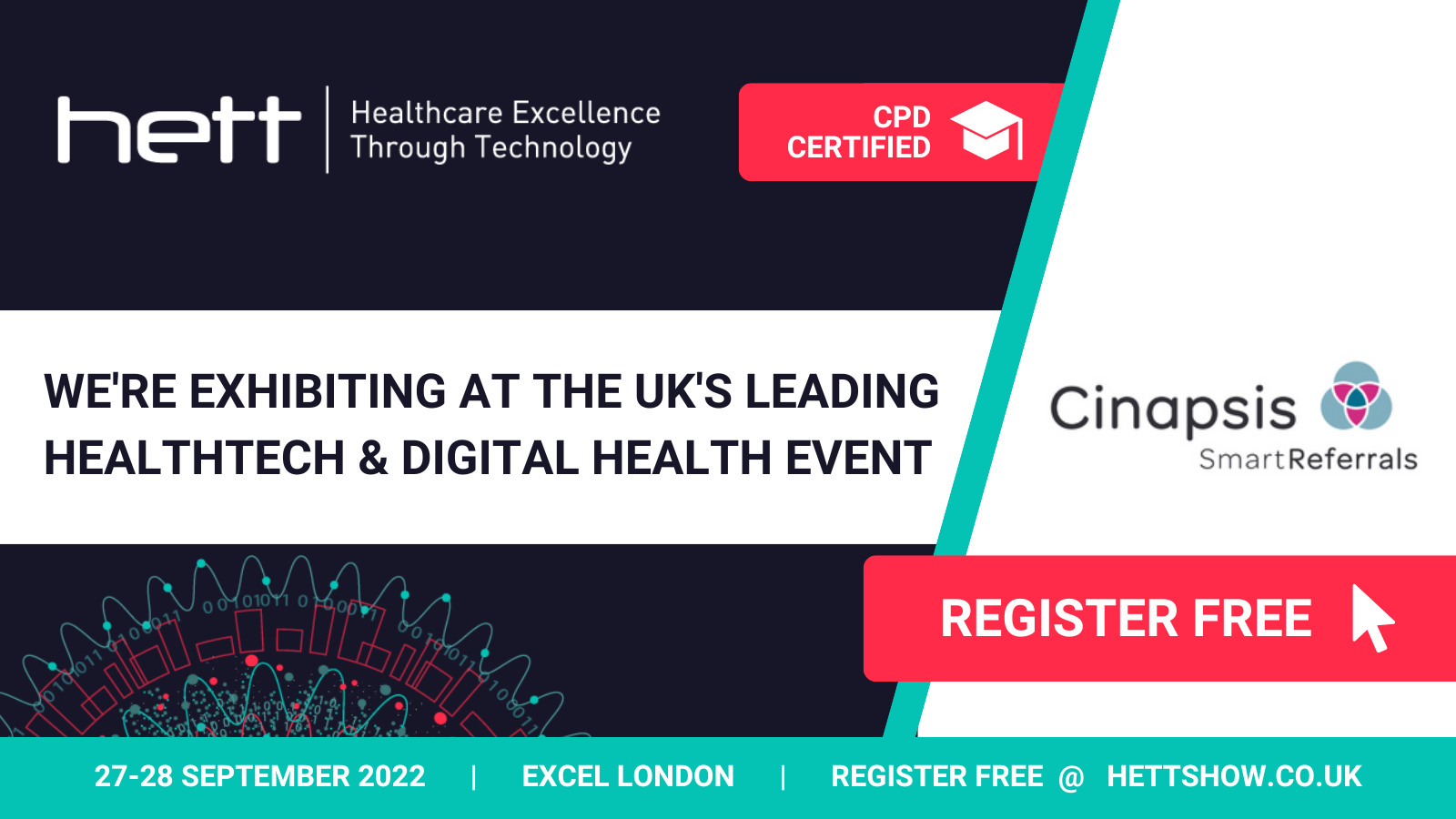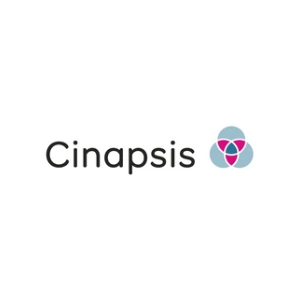Cinapsis SmartReferrals is a clinical communication platform that enables clinicians in primary and secondary care to communicate with one another, share information and make decisions together about the best next step in a patient’s care.
As an official exhibitor for the upcoming Healthcare Excellence Through Technology (HETT) conference in September, we spoke with Georgia Kingston, Head of Marketing at Cinapsis to discuss collaborative working in healthcare, support for clinicians, and more.
Georgia Kingston: At Cinapsis, we’re working with a number of NHS organisations all over England to equip clinicians with powerful digital advice and guidance and a best-in-class referral platform.
Our current partners include Cheshire & Merseyside NHS Foundation Trust, NHS Norfolk and Waveney Clinical Commissioning Group (CCG), Black Country Healthcare NHS Foundation Trust, and One Gloucestershire ICS.
Our digital SmartReferrals platform enables clinicians to connect with each other directly - via phone, video, or message - and securely share diagnostic information or images within the system. This means that a GP, nurse, paramedic, optometrist, or 111 call handler can directly contact a secondary care specialist to ask for advice and guidance on the management of a patient’s condition. The specialist can then review the case remotely and give feedback on whether a referral is necessary.
As a result, primary and secondary care services are supported to collaborate on decision making, reducing unnecessary referrals and ensuring that those who really need urgent treatment can be seen more quickly.
By automatically syncing with patient records and by cutting out the need for email and phone chases, our technology and services are playing an important role in alleviating some of the huge workload that GPs currently struggle under. By supporting NHS teams to turn unplanned care into planned care, and by significantly reducing the number of unnecessary appointments handed out, we’re also helping to reduce both the NHS elective care backlog and patient wait times.
HETT: A very important initiative in considering the constant evolution in digital technology. As it involves different organisations with specific needs, what are some of the biggest challenges that you have identified when working closely with your NHS/Care partners?
Georgia Kingston: We quickly learnt that there’s no such thing as a ‘one size fits all’ tech product for healthcare providers. Now, we work closely with our NHS partners to properly understand the nuances of their organisation, the specificities of their pain points, and the intricate workings of their service. This means that we can customise and tailor our product and pathways to better suit their needs and requirements
.
We also learnt that these needs and requirements are not static - they evolve and fluctuate throughout the partnership period. This is why we provide ongoing support and encourage regular feedback from our partners and platform users. If tweaks are needed to improve the outcomes that Cinapsis delivers, we’re on hand to make them. The dialogue we have with all of our partners is so important in helping us make our products and services as impactful and user-friendly as they can possibly be.
HETT: That’s a great example of how to strengthen collaborative working when approaching the healthcare sector. Tell us how working with your products and solutions can help tackle some of the challenges that exist within digital health?
Georgia Kingston: For digital healthcare - or any healthcare - to be delivered effectively, clinicians need to be empowered to work collaboratively across organisational boundaries. This means that they need tools and platforms that are both compliant with the highest regulatory and safety standards, and also interoperable with internal and external systems.
We designed the Cinapsis SmartReferrals platform to tick all of those boxes. The platform, which integrates seamlessly with EMIS, e-RS, and SystmOne and is DTAC-accredited, streamlines collaboration and communication between primary and secondary care colleagues. Messages, images, and documents can be instantly and safely shared to support shared decision-making and more informed, accurate referral decisions.
HETT: Having digital platforms to support a more digitally-enabled community in the workforce is prudent. Speaking of digital technology, we will be hosting HETT Connect again this year, enabling speakers to meet with exhibitors on a 1:1 basis. Who are you hoping to meet?
Georgia Kingston: We are looking forward to meeting all of the HETT attendees and we are always keen to use technology to facilitate this. We are particularly looking to meet with senior NHS leaders who have the responsibility for improving patient outcomes and an interest in using technology to achieve it.
HETT: As HETT Show approaches (27-28 Sept @ExCeL London), tell us what you are looking forward to the most at HETT Show 2022?
Georgia Kingston: When We’re looking forward to the opportunity to deepen our knowledge of the cutting-edge technologies on track to transform the way that healthcare is delivered. As well as participating in as many discussions and sessions as possible, we’ll also be seizing this opportunity to connect with fellow industry trailblazers and enjoy face-to-face catch ups with representatives from our NHS partner organisations.
HETT: Thank you for your time today, Georgia. It’s been a pleasure catching up with you and learning more about how Cinapsis contributes to the evolution of the healthcare sector. We look forward to seeing you at HETT Show (27th 28th September, ExCeL London)!


With many thanks to Cinapsis SmartReferrals.
%20(1).png?width=500&height=58&name=HETT%20insights%20logo%20RGB-04%20(1)%20(1).png)
